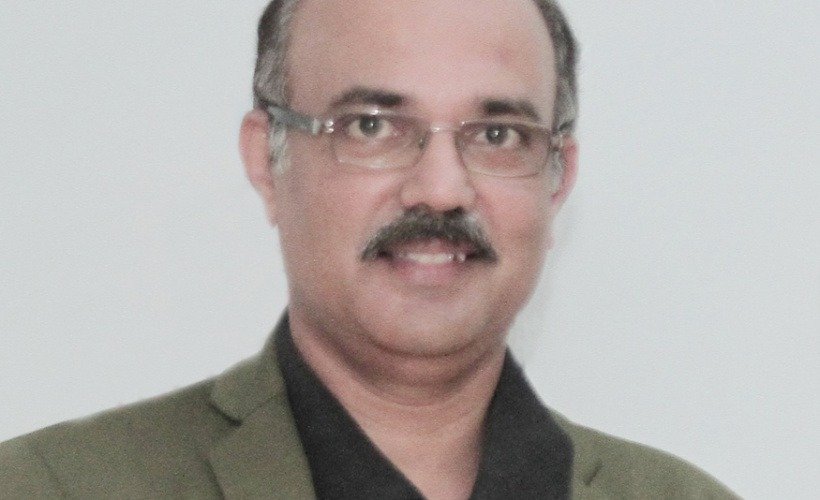
Kishore Shah explains how a technology college in Coimbatore is facilitating CSR appropriate behaviour and is sensitising students towards their social role and responsibilities
Here is an interesting story of how an educational Institute in Coimbatore is slowly and steadily facilitating CSR appropriate behaviour in a planned way and sensitising the students towards their social role and responsibilities. I was invited as an expert to review their projects and also mentor the faculty, members and students.
KCT – SOCIAL IMMERSION PROJECT (SIP) A Case Study.
Kumaraguru College of Technology (KCT), Coimbatore is a private Engineering College started in 1984 under the aegis of Ramanandha Adigalar Foundation, a charitable educational trust of Sakthi Group.
The able guidance and patronage of Arutselvar Dr. N. Mahalingam, Founder of Sakthi Group along with the efficient administration of Dr. B.K. Krishnaraj Vanavarayar, Chairman, the resourcefulness of M. Balasubramaniam, correspondent, and the foresightedness of Shankar Vanavarayar, joint correspondent has equipped the college with excellent facilities and well-qualified faculty. Their management is hands-on and sets the strategic direction for Kumaraguru Institutions Group (KIG).
KCT has initiated various programs within and outside the curriculum on social consciousness and outreach. To mention a few, Kumaraguru Action for Relief and Empowerment (KARE) is a volunteer-led movement, that, supports the victims of natural disasters such as floods, cyclones, and other calamities including the pandemic and ‘Namadhu Pangu’ (our contribution) for the progress and development of nearby villages.
KCT Business School (KCTBS) implemented the Community Engagement project in 2012. In 2014 the Social Immersion Project (SIP) was introduced based on the UN Sustainable Development Goals (UN SDG).
KCTBS is also a member of the PRME (Principles for Responsible Management Education). The SDGs are relevant for business schools as they can influence students with responsible and sustainable business practices.
In 2021, under the thought leadership of Dr. Mary Cherian, Professor and Head, KCTBS, it was decided that SIP must demonstrate and achieve 2 major goals – sustainability and social impact. Team leads Vanitha N along with Ranjith P, both Assistant Professors at KCTBS, worked to create a broad framework for the updated SIP.
Based on the framework, the following objectives were set:
• KCTBS to identify a village with pressing needs and initiate actions towards their betterment.
• Sensitise KCTBS students towards ground-level realities inculcate social responsibilities and expose them to responsible management projects as future thought leaders.
The major aspiration of the 2030 UN SDG Agenda is captured by the tagline ‘Leave No One Behind.’ Gandhiji viewed that, “Progress of a society should be determined by the state of the most vulnerable and the weakest ones.” People, who are furthest from the frontiers of development, are to be brought up to the level of the others for real development. The belief that social and economic change should be the responsibility of every individual and the society in general is one of the drivers of SIP and was one of the reasons to adopt a tribal village. Plans to introduce interventions in terms of education, healthcare, sanitation, empowerment, and economic independence hoping to impact the standard of living and achievement of UN SDGs are the highlights of the SIP program. Situated downhill of Nilgiris, Kallar Pudur, a village in Karamadai block, Mettupalayam, Tamil Nadu consisting of a tribal community of 1500 people, called ‘Irulas’, was chosen for the implementation of SIP.
Approach
Members of the SIP team outlined the concept to Thangavel, President of the Village Panchayat. He was very happy and rendered all his support to complete the initial phase of the project. The Team Leads also recognised the necessity of having CSR industry mentors to assist these projects and reached out to me as the Managing Trustee of GDP Foundation; and Sharada Venkateswar, social worker for coaching and guidance.
Phases
The first phase of the project had 180 MBA students (Batch 2020-22) collaborating in 13 groups to research the pressing needs of the people there. Based on the findings of the study, the mentors have recommended innovative solutions to meet those needs.
As part of the next phase of the project, the project team will collaborate and seek funding from government initiatives, NGOs, Corporate Social Responsibility programs, and international partners for implementing the identified solutions.
The team is working right now to bring massive behavioural, social, and economic changes to this village.
Miles to go
KCT BS has piloted SIP which will be taken over by the next batch of students, to ensure and monitor growth and sustainability. The long-term goal of SIP is to make an impact at the grass-root level and bring more and more needy villages into its fold, using UN SDGs as a guide and contribute to the growth of the nation as a whole. The team has taken a small step but has miles to go before it attains its goal.
Benchmark and Replicate
Goa has about 35 plus under graduate colleges spread across 12 talukas, 6 plus engineering colleges, now that NEP 2020 will roll from the coming academic year, educational institutions will need platforms to build both capacity and capability of students in line with NEP 2020 goals and if we replicate the KCT model, customise it to our needs and priorities it will serve as an excellent transition to NEP 2020.
Keeping the frame work of SDG (Sustainability Development Goals) we can easily access the existing scores on the micro indicators for every village/taluka on SDG and then make educational institutes in the vicinity design an intervention program/project thus making them accountable for taking up comprehensive role and responsibility for the overall, sustainable welfare based development of that village through students and link the same to the grant in aid and other benefits they would receive subject to the improvement of the micro indicator scores.
The general tendency or mindset is to keep medical colleges/faculties/students in the forefront for welfare based development however the KCT case study proves otherwise, that educational institutes can equally contribute towards CSR. While we are creating smart cities we cannot ignore building ‘Adarsh villages.
The writer is the Managing Trustee GDP Foundation www.gdpideaz.org Email: managingtrustee@gdpideaz.org





